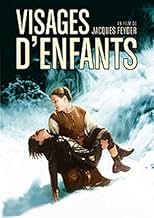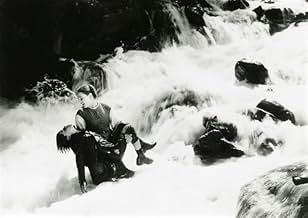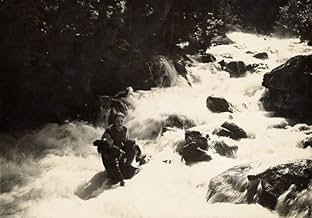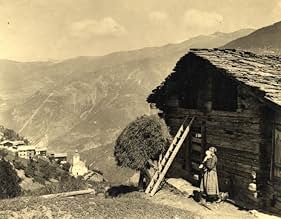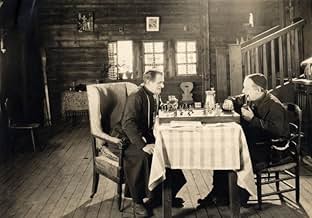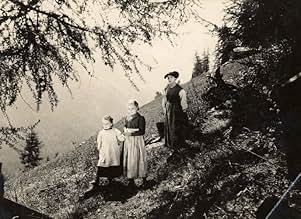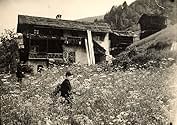A man whose wife has died remarries, and his new wife has a daughter of her own from a previous marriage. The man's young son, however, who loved his mother deeply and misses her terribly, r... Read allA man whose wife has died remarries, and his new wife has a daughter of her own from a previous marriage. The man's young son, however, who loved his mother deeply and misses her terribly, resents his father's new wife, not wanting her to take the place of his beloved mother, and... Read allA man whose wife has died remarries, and his new wife has a daughter of her own from a previous marriage. The man's young son, however, who loved his mother deeply and misses her terribly, resents his father's new wife, not wanting her to take the place of his beloved mother, and makes life miserable for his new stepsister..
- Director
- Writers
- Stars
- Director
- Writers
- All cast & crew
- Production, box office & more at IMDbPro
Featured reviews
His character is old enough to know something about death and what it means, but his younger sister doesn't have a clue. He walks with his father behind the coffin to see her buried, grieves for her and watches his father's tears with sympathy, while young Pierrette plays with her cat and whatever else she can find. Forest is very good here, all young pillar of strength until he collapses at the graveside, but he's ably assisted by some rapid fire montage work by the editors. This was originally released in 1925 so I wonder if it was before or after Battleship Potemkin with its groundbreaking sequence on the Odessa Steps.
Jean is obviously very attached to his mother, to the degree that he visits her grave every Sunday and sees her portrait come to life and smile at him. However his father feels bad that in the absence of a wife his house and children are being neglected, so he marries again, his new wife being Jeanne Dutois, a young widow who can't pay her rent. This impacts Jean not just because he has a stepmother but because he acquires in the process a stepsister, Arlette, and that leads to plenty of conflict.
The story is solid, very much in the European vein of slow and serious stories full of character development, and that's a good thing. There's decent camera-work too, Feyder and his cinematographers also making plenty of use of the gorgeous countryside to frame his story. It's supposedly France but it was shot in the Swiss Alps and you just can't go wrong with the Swiss Alps as a cinematic background! Feyder seems to be always great when filming in crowds or in public and this film is no exception to that rule. The accompanying 2004 soundtrack by Michael Coppola is great if not awesome, and in fact there's very little bad to say.
The only downside to me was pretty minor, and that was in what seemed to be a little clumsiness in the delivery of some of the actors early on: all adults, I should add, as the children are simply superb. I'm not talking about the traditional overacting of the silent era as this would have been seen as an underplayed film on those grounds. I think it just took a half hour or so for everything to get moving properly, because the film, as you'd expect from the title, is about the kids and maybe the adults had a harder time getting into the story when there were no kids around.
I can't fault any of the scenes that have children in, whether they be between Jean and his stepsister, played by Arlette Dutois, or with adults like Henri Duval as his uncle or Rachel Devirys as his stepmother. It's only early scenes between Vina and Duval or Vina and Devirys that don't quite carry the same weight. Thankfully the children are present for almost the entire film and these scenes are hugely impressive and yet very subtle, often without the benefit (or the distraction) of title cards.
I got drawn into this one far more than into Crainquebille and, to be honest, got lost in the magic of it. By the time the end arrived, which seemed far too soon even though the film is nearly two hours long, I'd forgotten about all of that minor downside entirely. What amazed me most is that none of the three children had long careers in the film industry, stunning given their performances here. According to IMDb, this was Arlette Peyran's only film, and Pierrette Houyez only made three. Jean Forest, the star of this film, went on to appear in ten in all, but switched to a career in radio. What a shame!
In another comment, Gerald A. DeLuca calls this is a movie about "sin, repentance and forgiveness", and certainly, Christian religiousness thoroughly shapes both the cultural context of the story and the feelings of all the characters in situations of doubt, fear and distress. Yet, this is much more than a "Christian morality tale".
In Christian tradition, there are two stories about the origin of sin: Eva and Adam and Kain and Abel. On first sight, the story of Jean and Arlette is somewhat similar to the story of Kain and Abel: It's a story about hate among brothers and sisters, about envy and jealousy. Yet, in Kain and Abel, jealousy is the primordial sin, an evil reaction to incomprehensible or unjust behavior of God.
Not so in "Visages d'enfants": there is no primordial sin in the movie. All the characters are capable of love and understanding, none of them is actually evil or cruel. In that respect, it is quite humanistic, in spite of the ubiquitous religiosity. Where, then, does sin come from? The origins shown in the movie are surprisingly simple: plain misunderstandings, subtle and unconscious inattentiveness to the feelings of others, well-intentioned behavior all the same hurtful to other's feelings, and to a large extent: fear and pain.
The ultimate cause of the drama is obviously Pierre's failure to adequately address his son's intense mourning. But my impression is that the father is above all afraid and feeling helpless. In particular, he is afraid that he won't be able to stand a solitary life for long, he is afraid that he won't be able to cope with the household work beside his duties as the mayor of the village, he is afraid that he won't be able to show enough of his love towards his two children, he is afraid of losing patience with them as indeed sometimes he does, he is afraid of failing his children's' education. His courage is sufficient to tell the priest about part of his anxieties, but he lacks the strength to show weakness in front of his son. All those small weaknesses, failures and misunderstandings are extremely beautifully and convincingly depicted in the movie and you also see again and again how small hurts done breed mistrust, malice and hate, and hate breeds new hate, getting worse and worse.
In Christian tradition, the remedy to sin is remorse, confession, prayer and penance; and ultimately, trust in divine mercy. In the film, there is indeed remorse, in particular in Jean. Confession is not done in front of God, but in front of other human beings. Prayers do not ask for divine pardon, but for help in earthly distress. There is no trace of penance at all. Salvation does not arise out of divine, but out of human mercy and love.
Of course, overcoming evil by means of forgiveness and love is a central concept of Christianity. Yet, Jean and his family need remarkably little help from God: No doubt, they do pray hard for divine help, but they are most successful when they act themselves in human, pitiful, and in particular in courageous ways. They prevent tragedies when they overcome their pride and fear, they find help when run they for it, they save lives when they put their own life at stake, they find love when they save their enemies.
In Christian tradition, even more than jealousy, the origin of sin is alienation from God, the decision of Woman and Man to live their own life, to gain knowledge by themselves, not to respect the limits that God set them. Ultimately, that's why only God can save them in the end. But in this film, people save themselves by overcoming their own weaknesses and finding their own strength, compassion and love.
Breathtaking scenery and brilliant cinematography help to capture the raw wild beauty of a troubled child's view of the world.
It would take many years and the brilliance of a Bergman or Lean to recapture such insight and clarity of vision on film.
One interesting note...I think I discovered a rather major gaffe not mentioned on IMDb.
The csreen fades out on a visciously chilling depiction of a brutally cold night (which includes a character being rescued from an avalanche of snow...a title reads "The Next Morning"....and we are suddenly in spring (if not summer) and the horse drawn sleigh of the previous scenes is now a cart...
Still...an otherwise brilliant and fascinating film.
The film begins with a funeral. The Mayor's wife has just died--leaving him and his two children behind. After trying to make a go of it, the man realizes he needs a mother for his children and proposes to a local widow--who herself has a young daughter. But, unlike the Brady Bunch, this new blended family did not magically work out--as the parents, in hindsight, did a pretty lousy job of breaking this to the kids--in particular, the 12 year-old boy. It actually came to him as a bit of s surprise--and to make matters worse, they gave his old bedroom to his new step-sister and sister. You could understand how the kid could feel alienated. Over the next few months, the boy (Jean) had a hard time adjusting. Much of his anger was displaced on his step-sister. Ultimately, this resulted in two near-tragedies.
Overall, a very good story that doesn't get too schmaltzy and has a lot of nice action. Well-paced, nice cinematography and very good acting by the children--this one is well worth seeing.
By the way, while it doesn't significantly harm the picture, like many of the silents, a small portion of the film has severely degraded. This is very normal and the damage is minimal but pretty obvious when it occurs. The old nitrate film stock was very unstable and tended to turn to powder, liquefy or even explode!
Did you know
- TriviaThe film was an artistic success but a terrible commercial failure, causing the bankruptcy of Mundus Film. As for de Zoubaloff, he moved into the radio set selling while Porchet became the technical manager of the Swiss Film Office.
Details
- Release date
- Countries of origin
- Official sites
- Languages
- Also known as
- Saint-Bernard
- Filming locations
- Production companies
- See more company credits at IMDbPro
- Runtime1 hour 54 minutes
- Color
- Sound mix
- Aspect ratio
- 1.33 : 1
Contribute to this page


